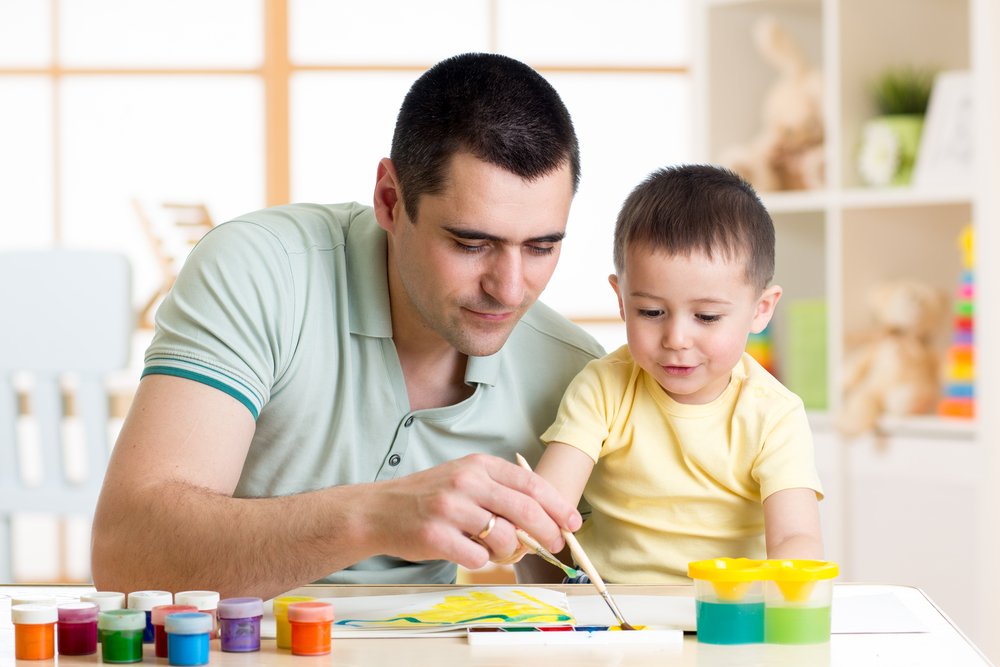We share a few simple ways to keep kids on track and engaged while schools are closed.
More than 300 million children around the world are home from school due to the outbreak of COVID-19, otherwise known as the coronavirus. Prolonged absences from daycare or school can be challenging for everyone, but especially for our little ones. Distance learning is not an option for babies: there aren’t any math worksheets or chapter books to send home.
During the first few years of life, babies primarily rely on interactions with adults to grow and learn. Infants form around 1 million new neural connections per second –and a lot of these connections are stimulated through play. Without access to their regular educational providers, parents become their children’s new “teachers.” But no worries! Here are a few ways to keep them engaged throughout the day.
Activities for kids at home
Dancing
Consider turning off the news and putting on some music instead. Listening to music has been shown to support the development of key cognitive and linguistic abilities in children and may provide a much-needed sense of calm. If your baby is young, put on some soothing music during tummy time. With toddlers, consider playing a song and creating an “interpretive painting” based on the sounds your child hears. With older kids, get nostalgic and play music videos from when you were younger. They’ll get a kick out of the fashion trends and will love learning more about you and your interests! Throw in a little dancing and you have yourself an at-home workout.
Reading
Books are a great way to help your child process emotions. Look through your bookshelf for books that talk about transitions, boredom, or health and read aloud with your little one. If your child is four or five years old, maybe now is the time to start reading chapter books! Pick a time each day to read one or two chapters at a time and consider setting up a cozy reading nook somewhere in your home. It will give your little one something to look forward to. Running out of books? The library may be closed, but ebooks aren’t! If possible, consider checking out an ebook if you need something new to read.
Board games
Board games are a fun way to get the whole family involved. Games with light strategy can help your little one practice problem solving, taking turns, following rules, and strategy building. And we all know that board games involve some serious emotional regulation skills. If your child is feeling fussy, maybe hold off on the games for a bit to avoid a meltdown. A puzzle is a great alternative!
Active games
Set up a “summer camp” at home and play your favorite interactive games from when you were a child. Consider Simon Says, Red Rover, Limbo, Red Light/Green Light, or try setting up an obstacle course and timing your children. If going outside isn’t an option, remember to clear furniture out of the way to avoid any bumps or bruises! Active games are a great way to tire out your children before naptime so consider setting up a designated game time in the early afternoon.
REFERENCES:
- Benefits of board games
- How music benefits your child’s development
- Reading to your baby
- Sway with me: Benefits of dancing with your little one
- Toddler activities to nurture your child’s imagination
Author: Olivia Maitret is a psychologist with a minor in Education and a Masters in Brief Systemic Therapy. She is a mindfulness instructor, trained on the treatment of Learning Disabilities. Olivia spent 4 years as a Preschool teacher, 3 years as a school counselor, and trains children in meditation. She is a family psychotherapist and feels excited to support parents and teachers from around the world in their essential participation in child development.
Editor: Riley Stevenson is a writer and teacher from Portland, OR with a Masters in Media Studies and Education. She’s certified as an English as a Foreign Language instructor and Trauma-Informed Care provider. Riley spent five years working as a language arts teacher in Oregon public schools, where she served as a lead curriculum consultant. She’s interested in the development of early language skills, especially in the area of second language acquisition.








